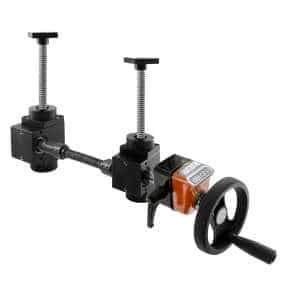Exploring the deeper meaning behind your relationship with your husband
News May 30, 2023

In any relationship, there are always deeper meanings that can be explored. Your relationship with your husband is likely to be multi-layered and complex, with a range of dynamics at play. It’s important to take the time to delve deeper into these layers and explore what is really happening beneath the surface.
By doing so, you can gain a greater understanding of your relationship and your husband, as well as strengthen the emotional connection between you. This can help to build a stronger foundation for your relationship, and ultimately lead to greater satisfaction and fulfillment for both you and your husband.
Throughout this article, we will examine the many different facets of your relationship with your husband, from the importance of communication to the role of intimacy, personal histories, conflict management, trust building, and more. By exploring these topics in depth, we hope to provide you with the tools and insights you need to nurture and strengthen your relationship with your husband over the long term.
The Importance of Communication in a Relationship
Table of Contents
Effective communication plays a vital role in any successful relationship, including your relationship with your husband. It is the key to fostering a deeper emotional connection and strengthening your understanding of each other. Whether it is through verbal or non-verbal communication, having a clear and open line of communication can help you navigate challenges together, express your emotions and needs, and ultimately build a stronger, more fulfilling relationship.
To improve the quality of your communication with your husband, it is important to actively listen to each other, practice empathy and understanding, and communicate clearly and directly. This means avoiding passive-aggressive behavior, using “I” statements instead of accusatory language, and taking responsibility for your own emotions and actions. It is also important to make time for meaningful conversations, sharing both the good and the difficult aspects of your lives with each other.
In addition, communication is not only limited to verbal interactions, but also involves non-verbal cues such as body language, tone of voice, and facial expressions. Being attuned to each other’s non-verbal signals can deepen your understanding and help you respond to each other in a more empathetic and compassionate manner.
By prioritizing effective communication in your relationship with your husband, you can build a more resilient and fulfilling bond that will withstand the challenges that life brings.
The Role of Intimacy in a Relationship
Intimacy is about more than just physical closeness with your spouse. It involves emotional connection and vulnerability as well. When couples are intimate on both levels, they form a deeper bond that can strengthen their entire relationship. Physical intimacy increases the release of oxytocin, a hormone that promotes bonding and reduces stress. This can create feelings of closeness and security, which then translate into emotional intimacy.
Emotional intimacy, on the other hand, requires trust and openness. It involves sharing your thoughts, feelings, and vulnerabilities with your spouse and listening to theirs in return. When you feel emotionally connected to your partner, you feel seen, heard, and accepted for who you are. This can lead to greater feelings of love and connection.
Intimacy in a relationship takes effort and intention. It requires prioritizing time for physical and emotional connection, as well as open and honest communication with your spouse. Some couples find it helpful to set aside specific times for intimacy, while others prefer to keep it spontaneous. Whatever approach you take, remember that building intimacy in your relationship is essential for its long-term health and success.
The Impact of Personal Histories on Relationship Dynamics
Every person brings their own set of experiences, beliefs, and values to a relationship. Personal histories can have a significant impact on relationship dynamics, including communication styles, conflict resolution strategies, and emotional connection. Understanding each other’s personal history can help create a deeper level of empathy and compassion in a marriage, leading to a stronger bond.
For example, if one partner grew up in a household where conflict was avoided at all costs, they may have difficulty communicating their needs and feelings in a direct manner. Whereas, the other partner who grew up in a family that openly discusses their emotions may find it challenging to understand their partner’s reluctance to confront issues head-on.
By acknowledging and respecting each other’s personal histories, couples can work towards finding a middle ground that honors both partners’ needs and communication styles. Open communication and a willingness to understand each other’s backgrounds can create a more fulfilling and rewarding marriage.
Managing Conflict in a Marriage
When you’re married, conflicts are bound to happen. However, how you handle those conflicts can make all the difference in the strength and longevity of your relationship with your husband. Effective conflict resolution involves a willingness to communicate openly and honestly, to listen actively, and to find solutions that are mutually agreeable. It’s important to understand that resolving conflicts in a marriage isn’t about “winning” or getting the upper hand; it’s about finding common ground and moving forward together.
One effective strategy for managing conflict in a marriage is to avoid attacking your partner personally. It’s easy to get defensive or to lash out when emotions are running high, but this will only further escalate the conflict and make it harder to find a resolution. Instead, focus on the specific issues at hand and work together to find productive solutions. This may involve seeking the help of a counselor or mediator to facilitate communication and provide guidance.
Remember, when you’re in a marriage, you’re in it for the long haul. Conflicts will arise, but with effective communication and a commitment to working together, you can resolve them and strengthen your relationship with your husband in the process.
The Importance of Trust in a Marriage
Trust is perhaps the most important element in any successful marriage. Without trust, a relationship cannot flourish and develop the deep emotional connection that is necessary for a lasting, fulfilling partnership. Trust means being honest with your partner, even when it is difficult or uncomfortable. It means being reliable, following through on promises and commitments, and being there for your spouse when they need you.
Trust also means having faith in your partner and believing that they have your best interests at heart. This can be especially challenging in times of stress or conflict, but with effort and commitment, it is possible to strengthen the trust in your relationship even during difficult times. Honesty, transparency, and open communication are all essential components of building and maintaining trust in your marriage.
When trust is strong within a marriage, it can deepen the connection between partners and enhance the overall quality of the relationship. Couples who trust one another are better able to communicate, resolve conflicts, and work together to meet challenges and achieve shared goals. In order to cultivate trust in your marriage, it is important to prioritize honesty, communication, and mutual support.
The Art of Listening in a Relationship
Active listening is a vital skill in any relationship, especially in a marriage. It involves giving your full attention to your partner and truly understanding their thoughts and feelings. By listening actively, you can deepen your emotional connection and foster greater understanding with your husband.
There are some practical strategies you can use to become a better listener. First, make sure to give your partner your undivided attention when they are speaking. This means putting away all distractions, such as your phone or computer, and focusing solely on them. It’s also important to make eye contact, and to nod or offer other nonverbal cues to show that you are listening.
Another effective strategy is to repeat back what your partner has said to you. This shows that you have truly understood their message, and can help prevent misunderstandings.
Finally, it’s important to practice empathy when listening to your husband. Try to put yourself in his shoes and truly understand his perspective. This can help you connect with him on a deeper emotional level and strengthen your relationship.
In summary, active listening is a key component of any successful relationship. By practicing this skill and implementing these strategies with your husband, you can deepen your emotional connection and enhance the overall quality of your marriage.
Nurturing Your Relationship
One key aspect of nurturing your relationship with your husband is to prioritize spending quality time together. It can be easy to get caught up in the daily demands of life, such as work and chores, and neglect the important task of simply enjoying each other’s company. Carving out dedicated time for date nights, weekend getaways, or even just a leisurely walk in the park can all help strengthen the bond between you and your partner.
Another important nurturing factor is to actively listen to your husband and show interest in his life. This means being present and engaged when he speaks to you, asking thoughtful questions, and showing empathy and support when he shares his thoughts and feelings. Communication is a two-way street, and making an effort to truly hear and understand each other can go a long way in building a strong and healthy relationship.
Finally, taking care of yourself is crucial to nurturing any successful relationship. This means practicing self-care, such as regular exercise, meditation, and self-reflection, to ensure that you are bringing your best self to the relationship. It also means setting healthy boundaries and communicating your needs and wants with your husband in a clear and respectful manner.
Overall, there are many practical steps you can take to nurture and strengthen your relationship with your husband. From prioritizing quality time together to actively listening to each other, these efforts can help create a strong and fulfilling partnership that withstands the challenges of time.
The Role of Self-Care in a Successful Relationship
When it comes to maintaining a successful relationship, taking care of yourself is crucial. Self-care involves prioritizing your emotional and physical well-being in order to build a healthy, fulfilling life for yourself and your partner.
By practicing self-care, you can reduce stress and improve your overall mood, which can contribute to a happier and healthier relationship with your husband. This can include activities such as daily exercise, getting enough sleep, practicing mindfulness and meditation, and indulging in hobbies and interests that bring you joy.
It’s important to remember that self-care is not selfish, but rather a necessary part of maintaining a balanced and fulfilling life. When you take care of yourself, you are also improving your relationship with your partner by becoming a happier, more patient, and more emotionally stable person.
Communicating with your husband about your self-care routine can also deepen your connection and understanding of each other. Sharing your goals, habits, and needs with each other can help create a supportive and nurturing environment within your relationship.
Overall, practicing self-care is a crucial part of building a successful and fulfilling relationship with your husband. By prioritizing your own well-being, you are also contributing to the health and happiness of your partnership.
Cultivating Gratitude in Your Relationship
Gratitude is a crucial element in any successful and fulfilling relationship. It allows us to focus on the positive aspects of our relationship and appreciate them with a sense of joy and affection. When we cultivate a habit of gratitude, we are less likely to take things for granted and more likely to express appreciation to our partners.
One way to cultivate gratitude is to engage in small acts of kindness and thoughtfulness towards your husband on a daily basis. This may include verbal expressions of gratitude, such as saying “thank you” for even the smallest things he does for you. It can also include physical gestures of affection, such as holding his hand or giving him a hug.
Another way to cultivate gratitude is to keep a gratitude journal. Each day, write down three things that you are grateful for in your relationship with your husband. This can help you focus on the positive aspects of your relationship and increase your overall level of appreciation and satisfaction.
Finally, it is important to maintain a sense of perspective when it comes to challenging or difficult situations within your relationship. Try to see them as opportunities for growth and learning rather than obstacles to be overcome. This mindset can help you develop a deeper sense of gratitude for your husband and your relationship as a whole.



